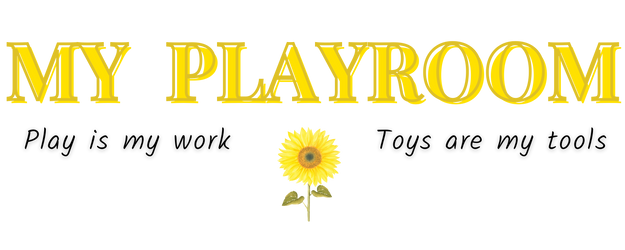From early infancy and childhood, every child requires educational toys. During the early, tender years, kids start to learn and understand things quickly. They often focus their attention on extra classes and training courses, but it is essentially where a home should provide your little one with room for exploration, learning, and development of a set of skills. And now, we are going to talk about the benefits of educational toys and how to choose them properly for your kid.
1. Believe in Your Child's Natural Abilities
Each child is born with five basic talents: physical, motor, language, cognitive, and social. The early development of these five basic talents is quite crucial since it influences the intelligence, physical growth, behaviour, and emotional aspects of a child and also the relationship he shares with others. The toys provide the perfect base to cultivate these five basic talents in your child, which cannot be developed by the usual methods of learning.
None of these talents should be left untaught, even when the child does not show very remarkable abilities for some of them. It is through early stimulation that hidden talents are discovered and a good foundation is given for lifelong learning and success.
2. Choosing the Right Educational Toys
Picking appropriate educational toys goes beyond merely choosing popular brands. Parents need to ensure they select safe toys, developmentally appropriate, and foster learning in the key areas. Some of the major factors you should consider in picking toys include:
a) Safety and Materials
Safety First, let the toy be made from safe, nontoxic material. Give priority to high-quality brands that adhere to safety standards for assurance in your child's play without exposing them to harm.
b)Developmental Relevance
Choose those toys appropriate to the child's current developmental stage. For example, a problem-stimulating toy with manipulative motor skills will be appropriate for a toddler, but one fostering language development will be more appropriate for a preschooler. Knowing what to aim for in terms of an age-specific skill will better help you choose the most powerful toys.
c) Multi-Sensory Engagement
To make learning more effective, educational toys should occupy multiple senses. Toys that engage touching, hearing, seeing, and sometimes even tasting for babies may provide young children with high-potential neural connections to strengthen their cognitive capabilities.
3. Early Childhood: The Key Sensitivity Periods
From birth to age two, children grow and develop at an incredible pace. Their brains are highly receptive to the stimuli surrounding them, and the right toys can foster learning naturally and playfully. Here are some key sensitivity periods in early childhood and ways in which educational toys support their development:
a) Music Sensitivity
Children in the age bracket starting from 0 to 2 years usually get attracted to the rhythmic sound of toys. Simple musical instruments, rattles, or other toys that can play tunes easily fascinate them and give them a keener musical sense. Rhythmic patterns help children develop timing skills at an early stage in life, which also helps in the development of language and motor skills in later years.
b) Language Sensitivity
At this stage, children are beginning to pick up the language around them. Interactive toys allowing repetition of words or answering questions advance this emerging language capability. Simple word games or sound imitation-conducive toys are great for age-appropriate support in this stage.
c) Sound Differentiation Sensitivity
During this stage, children become even more inquisitive about sounds and playing with their vocal cords. To enrich their sound awareness, which is very crucial during these formative years of their language development, exposure to a variety of toys with different sounds, tones, and pitches is helpful. Without this early exposure, children may struggle later in life when studying a foreign language or using a musical instrument.
It is not necessary to choose educational toys for your child as a time-consuming activity. While stimulating your child's natural aptitude, senses, and creativity, the door to full development can be opened. This is because from birth up until preschool, educational toys provide tools that support cognitive, physical, and emotional development in a fun and engaging way. At My Playroom, we are committed to helping you give your child the best educational start. Browse our collection of high-quality, developmentally appropriate educational toys and watch your child flourish!

